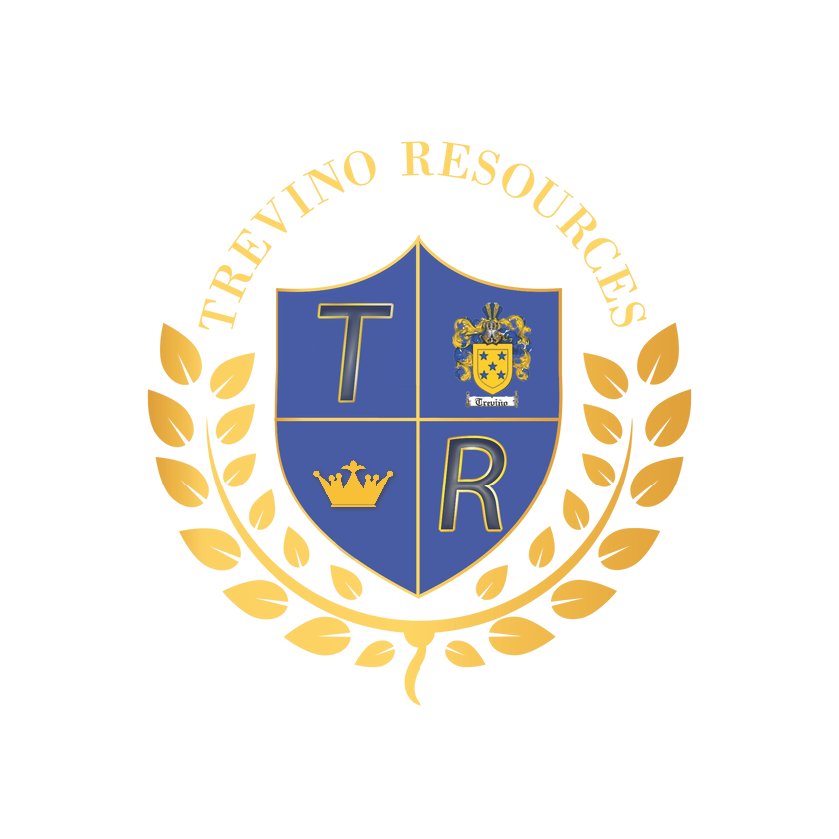Please reach out to Stephanie Barrett on LinkedIn

Please reach out to Kristy Kerns on LinkedIn
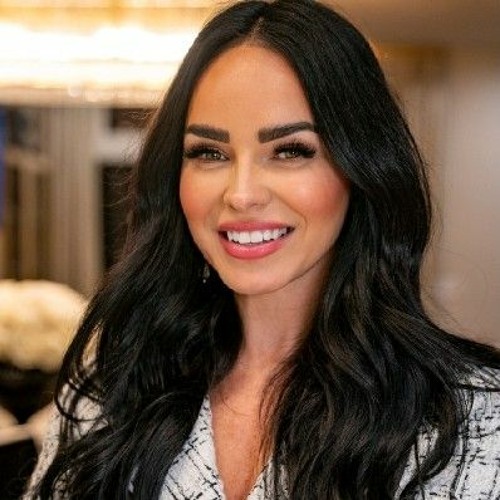
Check out StatusJet HERE
THE CRUDE TRUTH Ep. 92 Stephanie Barrett CEO and Founder of Her Competitive Advantage
Video Transcription edited for grammar. We disavow any errors unless they make us look better or smarter.
Rey Treviño [00:00:00] As we move forward into 2024, our men and women coming out of college treated fairly, especially from individuals that are sports and student athletes. We talked to an expert on this transition on this episode of The Crude Truth.
Narrator [00:00:16] In 1901 at Spindletop Hill near Beaumont. The future of Texas changed dramatically. As like a fountain of fortune. Thousands of barrels of oil burst from the earth towards the sky. Soon Detroit would be cranking out Model TS by the millions and America was on the move. Thanks to the black gold being produced in Texas, now, more than a century later, the vehicles are different, but nothing else has truly changed. Sure, there may be many other alternative energy sources like wind and solar and electric. But let’s be honest. America depends on oil and entrepreneurs. And if the USA is truly going to be independent, it has to know the crude truth.
Narrator [00:00:59] This episode is brought to you by LFS chemistry. We are committed to being good stewards of the environment. We are providing the tools so you can be too. Nape Expo where deals happen. Air compressor solutions. When everything is on the line, Air Compressor Solutions is the dependable choice to keep commercial business powered up. Sandstone Group. Exec Crue. Elevate your network. Elevate your knowledge. Texas Star Alliance, Pecos Country Operating. Fueling our future.
Rey Treviño [00:01:33] Well, hello again and as always, thank you for tuning in to another episode of The Crude Truth. With me today again, and as always, is my co-host, Kristy. How are you?.
Kristy Kerns [00:01:44] Amazing, you?
Rey Treviño [00:01:45] How bad I cannot complain. We’re already halfway through the year. I can’t believe that.
Kristy Kerns [00:01:49] Time flies when you’re having fun.
Rey Treviño [00:01:51] It is so true. It is. And, you know, ever since you you’ve really started to come on board and be the co-host, we’ve really been able to dive into a lot more. And, I just can’t thank you enough for that. And with your, your knowledge and your background, especially as a life coach and as, as a, as a female, you know, we’ve really been able to highlight some strong females, especially since you’ve come on. Coincidence? I don’t know, but, but today, you know, we had an opportunity to bring on another strong female, somebody that actually played Division one sports. They’re actually hailing out in Nevada, if I’m correct, out of the West Coast area, Las Vegas. Our guest today is, Stephanie Barrett. Stephanie, how are you?
Stephanie Barrett [00:02:40] Good. Thank you so much for having me. I love what you guys are doing. And I think there’s going to be a lot of great conversation today.
Kristy Kerns [00:02:46] I agree.
Rey Treviño [00:02:47] I totally agree. Well, I cannot thank you enough. And, you know, for everybody out there is like, well, why did you bring on Stephanie Barrett today? It’s like, well I think I just highlighted strong women that are doing amazing things because again, as I highlighted, it’s 2024 for goodness sakes. And they keep telling us that women are just as equal, which they are, if not probably better. I mean, we don’t give birth, right? So, anyway, Stephanie, I cannot thank you enough. And really, just to get out there, the real reason why I invited you on is, you know, there are nothing but strong women that are in the oil and gas industry. And with what, your company is doing. I know that there’s an excellent fit there for strong C-suite, executive level, high management women out in the oil and gas industry from out in West Texas to the suits there in downtown Houston. So thank you so much for coming on. For those out there that don’t know you, I just want to, highlight you just real quick before I let you introduce yourself. You are Stephanie Barrett, the new global vice president at Aristocrat Gaming. And you were also named 40 under 40 by the Global Gaming Business magazine. So congratulations to all that. But the real reason why we had you come is not only do you do that during the day, but you moonlight as the CEO and founder of her competitive advantage. Stephanie, hello and welcome to The Crude Truth.
Stephanie Barrett [00:04:11] Thank you so much for having me. I really appreciate it.
Rey Treviño [00:04:13] Well, you know, first of all, you know, if you can just give us a little bit about you, that would be wonderful.
Stephanie Barrett [00:04:18] Yeah. So just recently, I got promoted at a reciprocating the number one slot manufacturer in the world to the global vice president, of decision support, virtual finance. So, it’s been such an amazing journey. I just completed five years at a restaurant. It’s been an, a really, really great experience. And amidst all of that, how HCA and her competitive advantage really got started was, you know, as my team started to expand and to grow, I had to hire more talent, obviously. And we have a 7500 person organization, an amazing team. But what we did for people to apply for jobs today is kind of like watching paint dry. And then you wait, you’re 30 days and you’re not sure if you like any of the candidates. So I would start to kind of do my own sourcing, make my own phone calls on LinkedIn. And what I really realized was, there’s a lack of accessibility today in hiring diverse candidates. And so, I really want to solve that. And what I really thought about the candidates that I truly wanted to hire, deep down, because I was probably most familiar with them, we’re female athletes, and that’s how it was born. It’s a resume database for specifically current and former collegiately male athletes, where companies and recruiters can go to find.
Rey Treviño [00:05:34] Well, I just think that’s awesome that you’re able to do that because again, I find it interesting that you’re having a tough time finding these diverse athletes, especially at a time when you hear nothing on the radios and on the media about diversity, diversity, diversity. And here you are actually making a difference in real diversity, and you’re giving it the crude truth, so to speak, that, hey, I’m actually truly making the difference here today. You know, let’s talk about exactly what got you, like, okay. Because you’re a competitive athlete. Let’s talk a little bit about your background of being a competitive athlete, something.
Stephanie Barrett [00:06:12] Yeah. So I grew up playing sports. My, grandfather was one of ten. He’s 6 or 7. And he played, college basketball at South Dakota State. My father played college, football at the University of Washington. And so I just tried to follow in their footsteps, figured I’d play something in college. Ended up with a Fulbright scholarship to Arizona State University. Under the legendary Charlie Turner. I was injured most of my freshman year, and probably to be totally transparent, had a lot of growing up to do, as most, most freshmen do. But my injuries actually ended up ending my college career sooner than I would have liked. And I transferred to BYU to finish my schooling. And from there, I was actually a stay at home mom for a lot of years. My husband, was a college coach on the women’s side as well. So for 5 or 6 years, we were following his dream of, you know, being a head Division one, collegiate coach and eventually, hopefully winning a national title or something like that. And amidst all of that, about five years in my youngest, who was four and a half months old at the time, became really, really sick. And we were living in a really rural area of Pennsylvania, two hours away from, Children’s Hospital. And we ended up at the E.R. January 19th, and I noticed he wasn’t able to breathe. And when they read his oxygen, it was like in the low 80s. So we ended up at Children’s Hospital, for the first time by ambulance because like white, though, there was too much fog, and bad weather. And so we ended up at Children’s Hospital. We were there for over two weeks in the first day, and within those two weeks, every test that you could think of my son had so from, you know, simple MRI’s, echoes of the heart testing for cystic fibrosis, noninvasive things to a lung biopsy. And if you know anything about medicine, how quickly it happens and things get approved is kind of a sign of severity. And so, you know. We spent so much time at the Ronald McDonald House, it was connected to the hospital. We actually stayed there for the greater part of the next four months. While my son continued to have testing, we were being white lighted back and forth. Every day was kind of. Is he going to live or die? And he’s totally fine now. He’s now nine. He was diagnosed with something only like 20 kids have ever been diagnosed with. And with that, in July, our research doctor was like, hey, everything’s experimental. I really think you guys need to move somewhere dry and warm. I don’t actually know how another cold and flu season is going to affect his breathing. And it could just extrapolate the problem. And so with that advice, we packed up our stuff. There’s no college coaching jobs open in the middle of July, let alone anywhere that meets a dry and warm requirement. And so we had to deal with our moving company that over the next 30 days, we would let them know where we would end up. But, we paid for the farthest spot on the West Coast. So, we’re driving across the country at a kid with an oxygen tank and two other young kids in the backseat, and I’m interviewing literally on the sides of freeways in those buildings that you see, and ended up with a job. We ended up in Las Vegas, and I had an amazing career. The spark, the you know, your why becomes a little bit different when your child is literally almost dying every single day. And so that’s, that’s really driven me across my career. But I think I’ve been really fortunate to, be surrounded by so many great mentors that athletes I really comes out right where I crave those coaches. I crave those teams, well below me, beside me, etc. and and have really helped me, so much along this journey.
Kristy Kerns [00:09:52] Wow, that’s a lot to take in and process. But you did it.
Rey Treviño [00:09:56] Yeah. Yeah. That’s a that’s a whole I, I can’t imagine just having to be with your first born in every single test going on.
Kristy Kerns [00:10:04] Yeah. For four months. Wow. And that they found it though, thank God.
Stephanie Barrett [00:10:08] Yeah. Yeah. It was, it was so we had two other young kids. He was our youngest. We had a four year old. A two year old, almost two was like three, almost two, and then four and a half month old. And so, you know, we had no family out there. So people were flying in, we had parents on the team. We were, you know, we drop our other two kids off on the way to Children’s Hospital because they live in Pittsburgh. We didn’t talk much about it at the time. So not no one outside of our family. And, you know, the team really knew anything because we didn’t know what the outcome was going to be. I had singles, at 25 because I was literally so stressed. I mean, it and yeah, even to this day, if I watched any video footage of what happened or photos, I mean, I, I lose it because it’s it’s still, for whatever reason, so raw. I think the emotions of it all and how unless you really were there living it, understanding, wondering every day whether or not you needed to go to the ER or drive straight to children’s or be life flighted or whatever, was pretty crazy. We’d literally drive to the ER and it’s your son on oxygen. Breathing is heavily as he was and say, how much do you guys weigh? Helicopters on the way? If weather was bad, it would be like, hey, we have an ambulance. On the way. So it was it was an experience. Our is so close.
Kristy Kerns [00:11:28] You know, how did a ringer.
Stephanie Barrett [00:11:29] Y and what’s it were we really changes in those instances?
Kristy Kerns [00:11:33] Well, you said something about your team. Obviously your family. That says a lot about, obviously, you and your husband. So the team kind of stepped in and fill in for your family, which is power. Yeah. And you said that? Yeah. They say it brought your family closer together when a lot of times those actually separate families. So that says kudos to you. Yeah etc..
Rey Treviño [00:11:54] Though. Very true. I mean I again I just I’m thankful I can’t imagine I what again strong women I mean you guys are just amazing. And for what you were doing and what you’ve all been through, I want to, you know, talk about the fact that you talk about the team and how everybody stepped in and helped out, and, I want to, kind of, that’s a tough one. But, talk about her competitive advantage, and how you talk about this team and how you’ve got now so many great student athletes that are looking for jobs because they lack of better words. They understand their role as a team member. And so, so probably are some of the better employees to have that? It’s like, hey, this is your role. This is your job. Yeah, okay. We got to help out when so-and-so is not there. I mean, I would think that, just being able to be on any type of a team doesn’t have to be a specifically a sports team. But when you’re doing those extracurriculars in college, they probably really help you prepare for the real world. Real world, more than just focusing on your studies every day. Is that correct?
Stephanie Barrett [00:13:05] Yeah. I mean, you bring up such a great point, right? Sports is what I personally am most familiar with. And so that’s why my focus is there right now. But really, anything that you’re doing outside of everybody else’s requirements, that requires 20 to 30 plus athletes, I would argue is probably like 50 would include travel and training, training, trade, tutoring, sorry, and all the things. So, you know, and especially when you’re in a fishbowl, the refinement that happens through athletics. And like I said, it could be music. You know, being a professional musician, it could be sororities. My focus is athlete. That refinement that happens is invaluable, right? Like, for a female to understand the positive side of competition, where you can refine each other, where you can help each other, where you can give feedback to each other, where you can rely on each other is really, really powerful. And I think something that a lot of people who haven’t experienced that. Miss
Kristy Kerns [00:14:08] they’re lacking it. And I think women empowerment is so powerful. You know, we’re supposed to check each other on and uplift each other, whether it’s from A to Z, and that really needs to be diverse and put out there so much now in the world.
Rey Treviño [00:14:23] And it truly does. And if I may. You know, here, here you, you ladies are talking about, you know, you got to build each other up. And me being me being a guy, you know, Caitlin Clark right now is getting literally bullied in the WNBA. You know, to where you have people that are, on the NBA side that have just always let it just let them WNBA do their thing, are speaking out, saying, ladies, leave this lady alone, you know, do you have any thoughts on that?
Stephanie Barrett [00:14:51] You know, sports are so interesting. First and foremost, I personally am a Caitlin Clark fan. I’m a fan of the entire draft, making the WNBA in general. Obviously, being here in Las Vegas. The Las Vegas Aces, being Back-To-Back champions is such a fun thing to be a part of. You know, sports and sports. It’s crazy. I think it’s such an amazing thing that you can get on the court and go head to head, and come off the court and still shake hands and be friends, all that. I do think there’s, you know, a little bit more than than we’ve seen in recent history. But what I’m really excited about with Caitlin Clark, is as we see her career progress. She seems like such a great business person as well. Or surrounded by people that help her in that space. And I’m excited to start talking about those kind of things and seeing the amazing not just her, but Angel Reese, all of the other, you know, goats that have been in the WNBA for many, many years, seeing all the things that they’re going to end up doing. And, and setting an example for those future generations.
Kristy Kerns [00:15:57] Focusing on the good instead of what’s going on. Yeah, because there’s so many talents. And then we focus on one negative and then it skyrockets as what’s going on now. So we could just focus on the good of individuals. And it would be amazing how the world will change.
Stephanie Barrett [00:16:10] I agree.
Rey Treviño [00:16:11] You know, he’s talking about focus on the good. I want to take a step back. And maybe I was a bad kind of jumping into her competitive advantage after your, your, your story and the journey you’ve been on. But during that time that you were on that journey with your son and y’all are looking to transition to a better climate. That’s when you and her competitive advantage really started. What what made that happen during that time for it?
Stephanie Barrett [00:16:36] Yeah. So, during that time when we moved out, I actually heard about advantage. Wasn’t a thing. I’ve always had multiple jobs, whether it’s photography or consulting or whatever. And so eight years in, back in August. So this is just, you know, a few months ago, when I really started to see the accessibility issue and realized that diversity and the issues, the lack thereof in corporate America, in business in general has less to do with qualifications and more to do with accessibility. And when I through a study, a survey on my social media, and that’s not even a cool thing. So I don’t have a lot of followers. But I also sent it out to, you know, people, my husband, Ed, codes my old teammates, which, you know, just to see what are they doing? Did they have a job when they graduated? Is this even a problem? And this survey was really invasive, right. Like, what are your parents do? Did you have a job when you graduated? What was your salary when you graduated? What’s your current salary today? What’s your current title? And within 24 hours, we had quite a few responses and the results were astounding. So we found that 75% of collegiate female athletes today are graduating without a job. The national average right now is like 4%. So that is a huge problem. And then you compound that with Business Insider coming out with an article that says if you graduate underemployed or unemployed, you’ll remain that for over ten years. And you may never find a college level job. So when I found that out, I was like, I cannot sit around and do nothing, right? Like when I realize that we’re sitting on this goldmine of talent. Ernst Young says 94% of C-suite females rate competitive sports and have over half of the collegiate level. Compounding that, with my own experience and knowing that sports truly made me like the core of who you are is defining so much of your childhood. And those experiences. And so when I realized so much of my success. Stems from the things that I’d learned in athletics, whether that’s reliance on teaching, whether that’s being coachable, whether you know a myriad of other things. I was like, we’re sitting on a goldmine of talent. And when I think about how do you fix gender inequity in pay parodies? You start with the women played with the boys their entire life, and then high tides rise. All ships. Right. So I think we have a real opportunity here to make a change and. I can’t stand listening to another panel of people saying, how are we going to fix gender inequities and pay parity with no action, right? Like we’re out of point where it’s 2024 and we can’t wait 137 years or whatever the Global Forum says that it will take to reach gender equity. We got to start moving. And HCA is a step in that direction.
Rey Treviño [00:19:44] Holy cow. I mean, you know, you talk about and, thank you for giving up that, sharing that stat. I wrote it down to 94% of all C-suite females played some form of a sport. And again, that’s why I wanted to highlight and ask you to come on, because the leadership is there, the talent is there. The oil and gas industry, I know, we are getting more and more and more diverse. And we’re bringing on, much better talent. And that’s why I wanted to highlight you and what you’re doing. You also provided me with me a really fun case study that was called No Revenge for the nerds. So I know the oil and gas industry would love that. And I may even have to put that in somewhere in the beginning of, of of whenever I promote this, podcast episode. But, I loved it because it really showed how, especially in the Ivy League schools, a lot of the, sports athletes, male or female, not only were graduating with some of the better grades, but also some of the higher in, some of the higher end pay scales, and also in a lot of economics and finance, which I found very interesting.
Stephanie Barrett [00:20:56] Yeah, yeah, that was a really interesting article. So some Ivy League universities got together in essence, to answer the question, why do they have sports at an Ivy League university that is essentially an academic institution? So they studied all the power universities and Ivy League schools, meaning those universities that do not reduce the academic threshold for admittance, even for athletes. And what they found is in peak salaries, peak titles, cumulative titles. And sorry, what they found was that in peak salaries, cumulative salaries, peak titles and cumulative titled athletes actually outperformed their non-athletes. And, you know, an academic study is a lot more rigorous than my study rate. They’re using government databases. They’re having two buckets with, individuals as far as majors, careers, etc.. But what they found was super interesting is the first five years are pretty even. And then after that you see a blow open because it takes about five years speaking about mental health and all these components and tie ins, it takes about five years for an athlete to figure out who they are again, right. Like you’ve played your sport. It’s been your identity for your entire life. It’s everything you ever get those dopamine hits from, both from playing and the fundamentals, working out, but also through, you know, congratulations, scoreboards, all of these things. And overnight that’s essentially gone. And athletes go into what I call the last years. And the length of lost years is 100% dependent on how quickly you find a new obsession. And part of that is the need to graduate with a job. But also understanding it’s going to take some time to figure out why and who and what makes you tick and why you’re such a great candidate, right? Because in the sports world, and even as you graduate, everyone around you has played sports. So everybody’s intense, everybody’s all in, everybody’s competitive. And then you get to corporate America. And that’s not always the case. And so figuring out, you know, what your competitive advantage is in your work life, but also understanding that fire can either cook the food or burn the house down. So finding that balance that when you’re, you know, interacting and communicating with someone who doesn’t come from that same background, how how is that being received and, and that matters to.
Kristy Kerns [00:23:24] How are you helping them transition to finding their identity? Are you helping them in that process?
Stephanie Barrett [00:23:30] Yeah. So I think first and foremost is the awareness factor. You know, I meet with probably ten current athletes a week, hearing their stories, and they’re all the same. They all think they have this, you know, amazing story. And they’re alone in this, and that’s really what, I read in Portland where Dave talks, UConn was our biggest sponsor. Really was about is that awareness factor and understanding that you’re not alone? Every single athlete, male and female, by the way, go through this. And if you know that you’re going to go to law school and be a lawyer, your last year may be really short. You’re still going to have to learn how to eat again when you’re not burning 2000 calories a day. But you may transition a lot smoother. And then there’s the people who go in to the lost years and don’t know what they want to do. And so that a various component is huge. Right. And then secondarily is because graduating with a job is so important, this resume database becomes the core of who we are, right? When you think about the lack of accessibility, it is extrapolated for athletes in a way that I don’t think people have uncovered, but because now I’ve spoken with so many athletes in universities and I know what happens on the corporate America side. I see every problem clear as day, from simple things like geographical constraints. For instance, if I’m a, a local company here in Las Vegas recruiting at you and I’ll be that may not be the best place to hire a female athlete because most of those athletes likely are not from Las Vegas. Right? They could be from Florida coming here just to play sports. And so creating a national reach when 80% of of adults live within a 100 mile radius of their hometown, because people want to be near family. We have to have that National Geographic reach. But then there’s so much unintended friction happening right now that I don’t think people have understood how. Difficult it is to overcome without a program like HCA. So the resume database is absolutely free for universities, the only, paid component in athletes, by the way, the only paid component is the tracking. So what happens today if I’m a corporation and I go to let’s call it Unlv and I say, hey, I want a hired athlete, give me your two best resumes, because there’s no tracking of who’s majoring in what. Who has a job and who doesn’t. Who’s interested in what field and what and and not for then to actually be able to give two resumes to this company. They would have to set up 451 on one meetings with these athletes. And so corporate America wants to move fast. They don’t want to be waiting. Hey, go take three months to figure out who I could hire first overseas because they’re individuals and can’t write search a database that says these are the majors, these these are the people with jobs, etc.. There’s an inability to actually connect the two. So HCA essentially removes that friction point, but also gives the university an ability to search this database for their athletes so they can actually execute and maintain these relationships appropriately.
Rey Treviño [00:26:46] You’ve really done a lot here with, HCA. What you get is her competitive advantage. And, I mean, your database, right there is is a gold mine, in a sense, with with the knowledge and the individuals that you have in this and in the thought process that you have taken on yourself and your team, of course, to really kind of get that, nation wide because I liked how you talked about. So I came in, you know, the local people are always looking for like, the Las Vegas people are always looking for jobs or Dallas, you know, SMU might be looking for sorry, not SMU per se, but the city of Dallas might be looking in half. The people probably aren’t from Dallas. So that is something else that that you’ve really put into this and really thought about. And that friction really does help go away.
Stephanie Barrett [00:27:35] Yeah, yeah, I know it’s going to be really great. We’re we’re just getting started. So we have over ten universities committed to rolling out with HCA in the fall for their female athletes, which is amazing. And anyone who wants to learn more you can go to join her.com. That’s our website. Test out the products. See what? See what. Contact me, see the offering, etc.. But, so we have ten plus universities, including, Syracuse, University of Oregon, BYU, Indiana University, Clemson, the list goes on and on. A lot of really great universities who are investing in this space to understand, the importance of placing their female athletes. So really, really great momentum there. On the organization side, we’re starting to have, all sorts of conversations. So if you want to hire a female athlete, definitely reach out. There. So I mean, like I said, with ten plus of these athletes a week and, pro video is a little bit weird right now, you see, know, lesser graduation because every athlete has been afforded an extra year if they’d like to take it. But every athlete that I’ve spoken with and I probably spoken with almost a thousand, but one I would absolutely hire and and what’s the craziest thing? And they are hidden gems, right. Like they, you know, they’re graduating. They’re not quite sure what they want to do. They’ve spent all of this time winning all of their eggs in, you know, their athletic basket, because female athletes are worried about the winds of today and not blossoms of tomorrow. And when career fairs and all of those things are happening, a female athlete still has so many decisions to make. Do they want to go get a master’s? Do they want to be a graduate assistant? Do they want to play a fifth year if available? Where do they even want to live? Like, there’s so much to unpack that probably a career fair is not the best time for an athlete truly to make a decision. And and they have their season to focus on. Right. Also professional opportunities, from an athletic perspective, do they want to play overseas, etc.. So it becomes even more important to have this accessibility that can happen so quickly for these companies to, to, to in fact connect with these athletes.
Kristy Kerns [00:29:45] and just like, yeah, that’s all. Lie. You would never even know about this.
Stephanie Barrett [00:29:48] Yeah, yeah. Like a hidden problem. And these I mean literally I could so I have my notebook right here and I have so many athletes I won’t show you because it’s, there’s all these other notes that are personal, but, I have all these stars next to almost every athlete I’ve met with because I’m, like, higher than, like, their sophomore. Where are they in two years? Like they are some of them being most phenomenal people. And when you think about what’s happening in corporate America, right, that I is going to be taking away almost all transactional jobs. The soft skills learned through athletics are becoming even more important, right? And they’re so hard to learn and change as adults. Right? I mean, how many times have we said, that’s just how I am? I can’t change, right? Or, you know, the core of who we are is who we are, like it or leave it, whatever. But when you think about I and we’re, we’re doing a lot in that space in my job with aristocrat and all of that. Even with HCA, we have an AI component, you know, transactional jobs. AI is going to do the transactional jobs for us. The value that people will bring to an organization are their strategic minds, which absolutely are learned through athletics. Between scouting reports and understanding your competition and implementing a game plan and knowing whether or not it worked, and revisiting, but also those soft skills of how to be a team player, being okay, not hitting the game winning shot because your teammates more open, right? Like setting your teammate up for their perfect shot there. I mean, the list goes on and on. And I really think that over the next few years, the impact that a female athlete will have on an organization will be absolutely exponential.
Kristy Kerns [00:31:39] I’m excited to see where this goes. Yeah, I’m very, very.
Rey Treviño [00:31:42] I’m I’m very excited. And I like how you brought up a I because, you know, a lot of people think that AI is not going to replace a blue collar workers, but it’s going to replace white collar workers. And so when you have somebody like you just said, you know, to just like I wrote it down, that actually has a strategic mind and is a real team player. Somebody that lack of bit is good in the office that that knows a role and helps out. And like we’re just saying sets other people up. Those are those kind of skills, those there I say conversational skills and interpersonal skills I think is where word are going to become even more important as technology only continues to get better.
Kristy Kerns [00:32:23] Yeah, because you can’t replace that with AI no matter how much can’t be replaced.
Rey Treviño [00:32:28] Yeah. Yeah.
Stephanie Barrett [00:32:29] I think the craving for human interaction will also increase. Right. Like and that genuine interaction you guys in sports, when you’re on the field, on the court you can’t utilize AI, right? You can’t phone and and be like, what can I make right in this moment? You have to really be decisive. You have to rely on your team and you have to be all in. And those are things that I think, like I said, are just going to become even more valuable. I think we all say they’re valuable today. But when we when we talk in two years, again, we’re going to be like, wow. It is literally the most important thing for anyone in any role running any organization, in any relationship, etc..
Rey Treviño [00:33:13] You know, you’ve unpacked so much today, and I cannot thank you enough for doing this episode. We got to get her into the studio. You need a, I’ll do a shameless plug for, real news real quick. And we got to introduce her to Jeff Chrisley because she could do a lot on on. Oh, yeah. Look at you. Your mind’s already turning. Also, but we could talk. We could discuss about that after. After the episode. But, you know, stuff if Stephanie, if I, if you will please give us the name in the website. It how how people, how companies how management hiring HR people. How can they reach out to you in contact? Her competitive advantage.
Stephanie Barrett [00:33:57] Yeah. And thank you again so much for all all you guys are doing bringing light to these kind of situation. Strong women in general. I think you’re, you’re breaking down barriers of accessibility. And I think those kind of things are really, really important. So first of all, thank you so much for that. So again, my company is called her Competitive Advantage. You can find out more information or contact me there guru dot join her.com. We’re creating a movement. We’re super excited. If you are interested in partnering with us, if you’re interested in hiring, talent, having a place, as we all know, you can’t utilize gender filters in the United States. So companies and recruiters who want more equitable candidates go where those demographics are guaranteed. And so HCA is a great place, right? We have people. I’ve already placed someone in biomedical engineering. I play someone in general business. We’ve got literally every major you can think of. We we have we have people. So definitely reach out. It’s going to be a really exciting journey over the next couple of years. And I can’t wait to connect again.
Rey Treviño [00:35:04] Well, I cannot wait either. And I wanted to, just ask a couple of random rapid fire questions, because I’m pretty sure with, with everything you’ve got going on, and they’re not hard ones.
Stephanie Barrett [00:35:17] How do you say hi?
Rey Treviño [00:35:19] How are you? Reading any good? Are you reading a good book right now? And if so, what?
Stephanie Barrett [00:35:24] Oh, my gosh, I’m like, I love reading. And you know what’s so funny? Part of the reason I talk so fast is because I actually listen to everything on two times speed, TV shows, books, etc. it’s a little bit different. Feel you? I kind of have to get used to because everything is very intense at two times speed. But my book that I’m reading right now that I just finished is Hidden Potential. And it is amazing, but I have a laundry list of really great books that I have loved over the years.
Rey Treviño [00:35:53] Okay. And then are you streaming any episodes or streaming any shows right now on any of those sites like the, you know, Hulu’s Netflix? Is there anything like that?
Stephanie Barrett [00:36:03] You know what’s so embarrassing? I actually really don’t watch any TV. I get 30 minutes or an hour while I’m working out in the morning. And it’s usually just some mind numbing something in the background, like the voice or their Kardashian. They don’t feel like fully involved in to know what’s happening. Some competition survivor. I, you know, this is so funny. So being competitive, I told my kids I was like, hey, do you think I would do well on survivor? Like, come on, I this would be so fun. I’ve always want to be like The Amazing Race. But then, you know, I got three kids or my husband and I got to go away. So I’m like, what about survivor? And they’re like, mom, you’re addicted to chocolate chips. That’s like, my advice. I don’t drink or, you know, you go, yeah, you’re addicted to chocolate chips. And I don’t know if you could survive 30 days without it. And I like so we’re still we’re still working on bringing my family that I could do something like that, but usually it’s, competition show cooking or my name, anything. But it’s really just on as background noise while I’m throwing some weights around or running on the treadmill.
Rey Treviño [00:37:09] And then since you’re in Las Vegas, do you have a favorite restaurant there in town?
Stephanie Barrett [00:37:15] You guys are like, man, she seemed really excited when she was talking about all these businesses and now she’s really boring. We rarely eat out. I’m not gonna lie. And I’m better that way because she just love to cook and hang out as a family. And it’s with all their sports schedules. Life is almost a little too crazy to fit in. Like going and sitting down at a restaurant. So my favorite meal, what’s literally everybody who works with me, I’ll tell you, is salmon with anything. Rice salad doesn’t matter. Like we’re on a work trip. They’re like, hey, Steph, what are you getting on the menu? There’s three salmon options, right? Like, they just know it every day. Damn.
Rey Treviño [00:37:55] Well, I love it. Well, again, for those out there, it’s her competitive advantage with Stephanie Barrett. And one more time, how can they get Ahold of you?
Stephanie Barrett [00:38:04] Yeah. So through our website, there’s a contact form. www dot joinher dot com. Reach out there. My email. Stephanie I joinher.com. So if you want to email me directly, you can do that as well.
Rey Treviño [00:38:16] And, Kristy, I cannot thank you enough, as always. And great insight. I mean, again, you know, you’re here, your life coach, your keynote speaker, the things that you’re doing, it’s just amazing. So thank you, as always, for coming on. Stephanie. Thank you. We need to get you in the studio. We need to find a reason to get you to Dallas and then get you here, one on one with with our expert over here. And I cannot thank you enough into our all our listeners out there. Thank you. And, we’ll see you again on another episode of The Crude Truth.
Narrator [00:38:47] Again, the Crude Truth would like to thank today’s sponsors, LFS chemistry, Nape Expo, Air Compressor Solutions, Sandstone Group, Exec Crue, Texas Star Alliance, Pecos Country Operating, and Real News Communication Network.
Narrator [00:39:07] The easiest way to start your own podcast and TV show. Real News Communications Network stand out from your competition. Produce streams of high quality social media content. Become a thought leader in your industry with RNCN and you get to be the host. We handle everything else. Tour one of our three locations in Dallas, Fort Worth and the colony. Call (972) 402-6333 or visit. Launchashow.com to find out more.
We Want To Thank Our Sponsors Of THE CRUDE TRUTH.
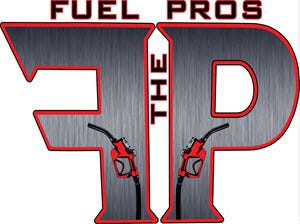
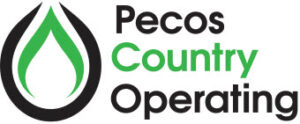
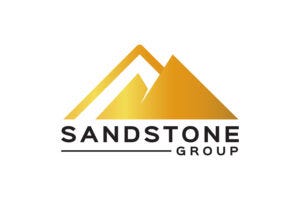
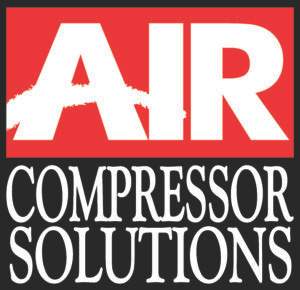
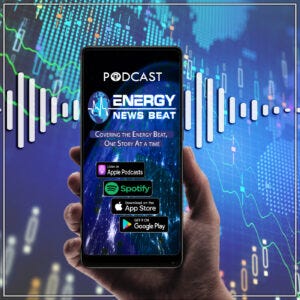



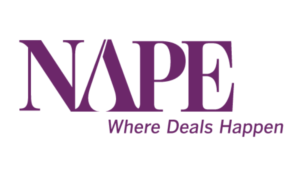
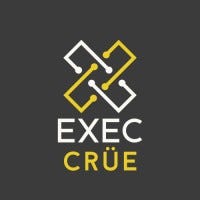
Sponsorships Are Available Or Get Your Own Corporate Brand Produced By Sandstone Media.
David Blackmon LinkedIn
The Crude Truth with Rey Trevino
Rey Trevino LinkedIn
Energy Transition Weekly Conversation
David Blackmon LinkedIn
Irina Slav LinkedIn
Armando Cavanha LinkedIn
